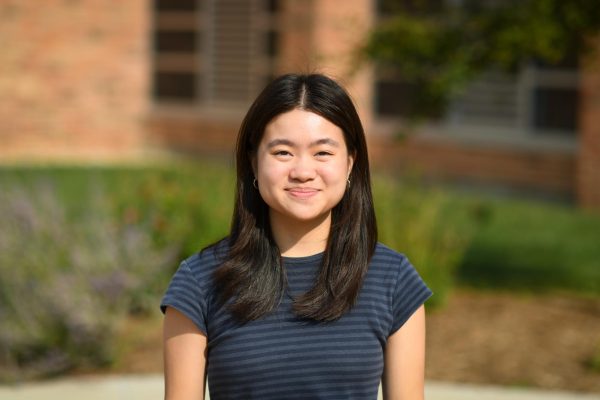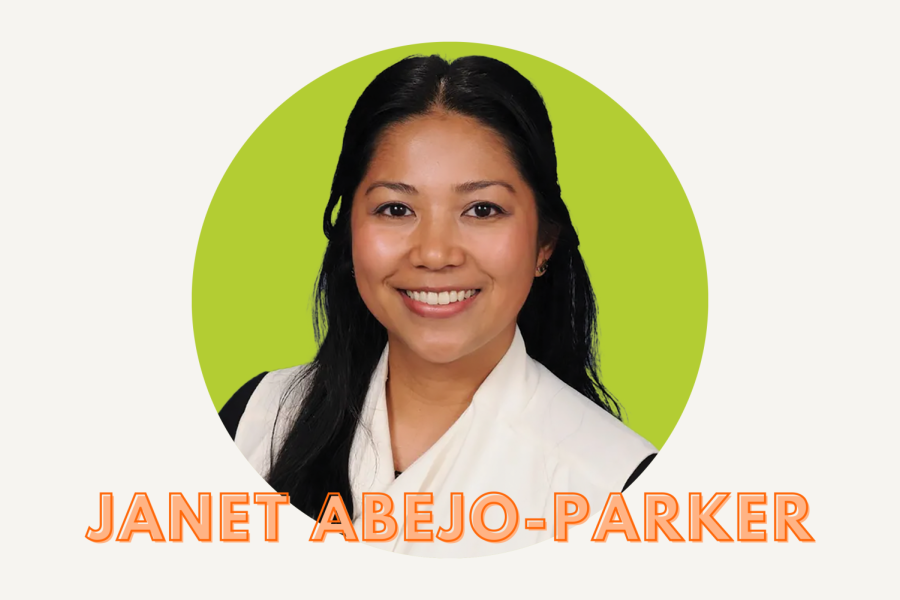“Oms-what?”
Janet Abejo-Parker informs students, staff and other prospective visitors to her office about her responsibilities as the ICCSD ombuds.
Janet Abejo-Parker describes her duties as the ICCSD’s ombuds.
Hi, I’m Janet, the Ombuds. “I’m sorry, what was that?” “You’re who?” “Oms-what?” These are typical responses I receive when I introduce myself as the Ombuds for the ICCSD.
Most people have never heard of an ombuds, let alone have been asked to pronounce it. It is a unique role with an uncommon name. I have heard anything from “omsbuds” to “omnibus,” but it is actually pronounced, “awm-budz.” As defined by Merriam-Webster, the term ombuds roughly translates to “appointed official.” When the role “classical ombuds” originated in Sweden, it was considered a formal position that investigated complaints. However, my role is quite different from a classical ombuds, which often leads to confusion. I am an “organizational ombuds,” an informal role where one does not participate in any formal processes, investigations or complaints. Organizational ombuds are typically more common at colleges and universities as well as private corporations. For example, the University of Iowa, American Red Cross and Pinterest all have organizational ombuds, like me. The main purpose of my role is to build trust, enhance relationships, improve communication and promote continuous improvement within the organization.
The Ombuds Office is best described as a general concern office and conflict resolution resource. This means that students, parents/guardians and employees may contact me with any school or district-related conflict or concerns. I can help by discussing options, providing resources and sharing general district information. I also assist individuals by sharing the best conflict resolution practices and by serving as a neutral, impartial party to facilitate difficult conversations and open communication between parties.
The International Ombuds Association Code of Ethics provides core values that are essential to the work of an ombuds. The following core values are priorities in the work I do every day: act with honesty and integrity, promote fairness and remain non-judgemental, and act with empathy and respect for individual differences.
There are also four guiding principles, established by the IOA Standards of Practice: independence, impartiality, informality and confidentiality. These principles describe the critical elements and requirements for operating a sound ombuds program.
The IOA Code of Ethics states, “Confidentiality is the defining characteristic of the Ombuds practice.” The Ombuds cannot share the identity of anyone who contacts the office, disclose information shared with them or take any action without the express approval of the visitor. The exceptions to confidentiality are issues requiring mandatory reporting, sexual harassment/assault concerns and concern for imminent harm to oneself or others. As one can see, the guiding principles of confidentiality and impartiality particularly make the ombuds position unique.
I am often asked what types of concerns come through my office. It is truly a wide array of school and district-related issues and conflicts. In general, reasons someone may contact the Ombuds Office are: they don’t know where to go for help, they are having trouble finding the information they need, they prefer to work with a neutral party or they feel their voice is not being heard. Conflicts may also be taken to my office if there is a lack of trust, breakdown in communication, power imbalance, or concern over confidentiality and/or retaliation.
My annual report, which can be found on the Ombuds Office page of the district website, summarizes the topics of concern I receive in a given year. When someone contacts the Ombuds Office, it is my general process to engage, clarify and ultimately explore options to address any given concern.

As the introduction video on my webpage states, “I’m here to help.” If you would like to discuss a conflict or concern in a safe, confidential space, please contact the Ombuds Office through phone: (319) 688-1312, cell: (319) 777-9558, email: ombuds@iowacityschools.org or website: www.iowacityschools.org/ombuds.
Your donation will support the student journalists of West High School. Your contribution will allow us to purchase Scholarship Yearbooks, newsroom equipment and cover our annual website hosting costs.

Anna Song is a senior entering her final year on the West Side Story staff! This year she will be the Design Editor for the print newspaper. Outside the...



